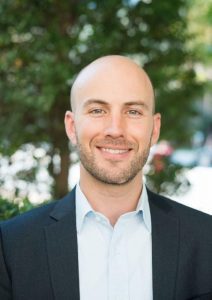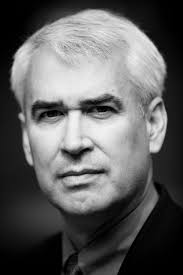Yunnan
a case study in China's rural transformation and sustainable development model
This event focuses on the impressive development of Yunnan, China, highlighting how the province moved from a rural area with high levels of poverty to having the necessary infrastructures of the modern-day. In just twelve years through a massive infrastructural development coupled with a government-led poverty eradication campaign, Yunnan has completely transformed into a thriving area.
We’re pleased to welcome several experts from the Institute of Current World Affairs, China Centre, and the GreenPoint Group as we explore the history of Yunnan and how the city was able to transform. Join our panelists as they share their unique perspectives of living and working with the area and their experiences of seeing the province grow into a leader in the sustainable development movement.
This dialogue is in partnership with the Institute of Current World Affairs and TN China Network.
This event is part of USHCA’s ongoing series, The Way Forward, where we discuss different ideas and initiatives used by the U.S. and China and how they can be applied to the Heartland region.
Panelist

Matthew Chitwood
Fellow with the Institute of Current World Affairs
Matthew Chitwood
Matthew Chitwood recently returned from two years in a remote mountain village in Yunnan province where he observed first-hand drastic social and economic change in rural China. Prior to his fellowship with the Institute of Current World Affairs, he developed, managed, and taught for study-abroad programs including CET, CIEE, and Where There Be Dragons. He also worked for the Bill & Melinda Gates Foundation and the U.S. State Department’s Critical Language Scholarship Program.
Mr. Chitwood holds a dual M.A. in China studies and international economics from Johns Hopkins University’s School of Advanced International Studies (SAIS), and completed the graduate certificate program at the Hopkins-Nanjing Center. He has written for Foreign Affairs, Foreign Policy and The American Interest magazines and is currently working on a book based on his fellowship research.
Panelist

Brian Linden
Owner, Linden Galleries and China Centre
Brian Linden
In 2004, Brian and his wife Jeanee sold their home, gave up their careers, and uprooted their 5 and 8 year-old sons to develop a social enterprise in rural Yunnan. Throughout the preceding twenty years, they had watched their adopted home develop boilerplate tourism models that showed little respect for the tangible and intangible resources of rural communities, all while delivering less than ideal financial returns. They wanted to rebalance development and move away from gimmick architectural designs and the restaging of 'old culture'. Their approach started with the physical preservation of nationally protected heritage sites, something unprecedented in China.
After restoring and repurposing these structures, a process that often took 3-4 years, they focused on the intangible, incorporating the community into their project. They did this via employment, averaging nearly three local staff per guest room, by extending educational opportunities to the local community via partnerships with domestic and international high schools and universities, and by championing local participation in the development goals of the region. The Lindens have expanded to six sites in Yunnan, including two national park projects, and their newest compound, a Ming/Qing Garden Mansion in Suzhou. Their projects are self-funded and financially sustainable.
Brian was born and raised in Chicago and worked as a carpet cleaner and house painter to get through community college and night school. He was awarded a scholarship to study at Beijing University in 1984 but was immediately recruited by Beijing Film Studio to play the leading role in a movie. He later transferred to CBS News's Beijing Bureau and met with most of China's leaders from 1984-1987, including the 60 Minutes interview with Deng Xiaoping.
Brian has graduate degrees from the University of Illinois, Johns Hopkins, and Stanford University where he left his doctoral program to help the Swedish government to establish international schools in the recently opened Eastern Bloc countries in early 1990. He continued to work in international education investment worldwide, participating in projects in over 80 countries between 1990 - 2004. He still hopes to finish his dissertation. His first book, published by Zhongxin Publishers, will come out at Chinese New Year in 2021.
Moderator

Daniel B. Wright
President and CEO, GreenPoint Group
Daniel B Wright
Dr. Wright advises executives of leading global companies through his nearly four decades of China experience building bridges between people, resources, and public policy. He founded GreenPoint Group, a boutique strategic advisory firm with offices in Washington, D.C. and Beijing.
Wright was formerly Senior Vice President and China practice head of the Albright Stonebridge Group, a global strategy firm based in Washington, D.C. He also served at the U.S. Treasury Department as Managing Director for China and the Strategic Economic Dialogue (SED), where he provided strategic counsel to the Secretary of Treasury Henry M. Paulson, Jr. for this Cabinet-level economic exchange with China.
Prior to his Treasury Department appointment, Wright served as Vice President and Washington D.C. Office Director of the National Bureau of Asian Research and as the Executive Director of the Hopkins- Nanjing Program of Johns Hopkins University School of Advanced International Studies (SAIS). He has been a visiting scholar at Qinghua University’s School of Public Policy and Management.
Dr. Wright is a nonresident senior fellow with the John L. Thornton China Center at the Brookings Institution and a member of the National Committee on U.S.-China Relations. He earned his Ph.D. and M.A. from Johns Hopkins University SAIS, his M.Div. from Fuller Theological Seminary, and his B.A. from Vanderbilt University.
From 1997 to 1999, Dr. Wright held a fellowship with the Institute of Current World Affairs, during which he lived in southwest China’s Guizhou Province and wrote monthly reports from the perspective of grassroots societies in the country’s hinterland, with particular focus on governance and socioeconomic development issues.





I finally was able to listen to this program and it was excellent, Min! Thank you so much for organizing this. On our last Denver Sister City trip to China we stayed at the Linden Center in Xizhou and were luck to spend some time with Brian so it was great to hear from him today. Happy New Year (American style) to you all!
France